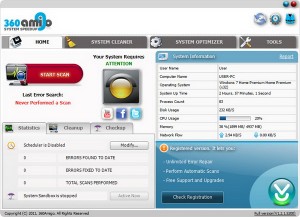


The test PCs were a Dell Latitude D520 laptop (1.66GHz Core Duo T2300, 512MB RAM, Windows XP Professional 32-bit), a Dell Inspiron E1505 laptop (1.6GHz Core Duo T2050, 1GB RAM, Windows Vista Home Premium 32-bit), a Lenovo ThinkPad Edge laptop (1.3GHz Core 2 Duo U7300, 4GB RAM, Windows 7 Professional 32-bit), a Toshiba Satellite M645-S4055 laptop (2.4GHz Core i5-M450, 4GB RAM, Windows 7 Home Premium 64-bit), and a custom-built desktop that we frequently use in the Labs (2.4GHz Athlon 64 4000+, 3GB RAM, Windows XP Professional 32-bit). So we collected five systems of different ages that had one thing in common: wear and tear. Obviously, we couldn’t use pristine PCs to test the utilities, since they wouldn’t have any crud to clean. (We disabled WorldBench’s defragmentation routines to give each cleanup utility a chance to use its own, if it had one.)


If you were to see any performance benefits from running these cleaning utilities, they’d likely show up in WorldBench 6. Unlike artificial benchmarks, WorldBench 6 is based on timed scripted tasks in common programs such as Mozilla Firefox, Microsoft Office, and Adobe Photoshop. The Testing ProcessĮach of these utilities promises to make Windows run faster by optimizing and maintaining your system, so we decided to use our WorldBench 6 benchmarking suite to test the performance claims. The result? In most cases the cleanup utilities scarcely made a difference in overall system performance, and in a few instances they actually made things slower–though they did shave a few seconds off the test machines’ startup times. We dug up five well-used PCs of various specs and generations, and ran four popular Windows cleanup utilities– Ashampoo WinOptimizer ($40 for version 7), Iolo System Mechanic ($40 for version 10), Piriform CCleaner (free), and 360Amigo System Speedup (free version)–on all of them.


 0 kommentar(er)
0 kommentar(er)
